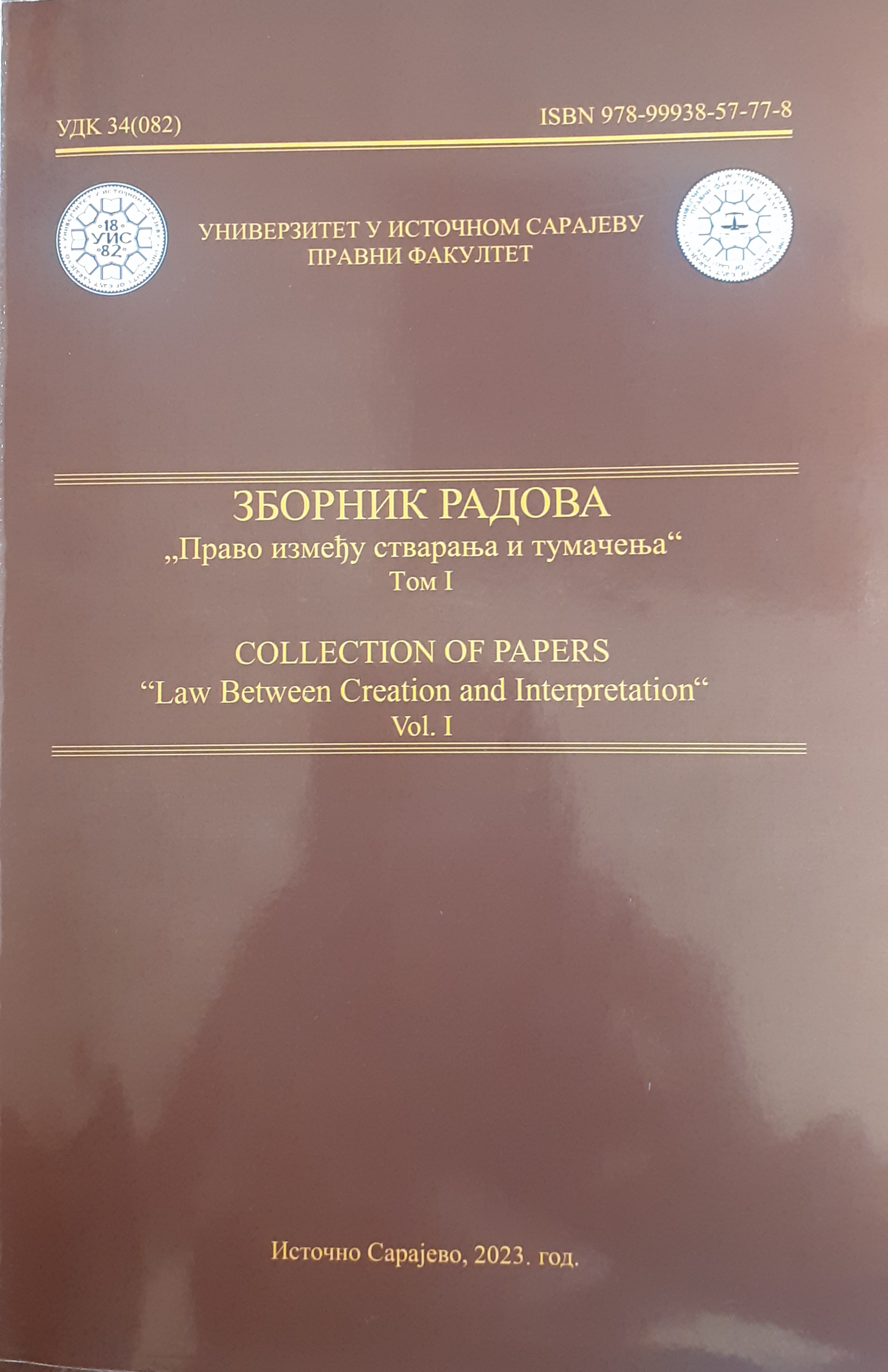Тумачење као инструмент Европског суда правде за ширење унутрашње надлежности
Interpretation of ECJ's Tool for Expansion of the EC/EU's Internal Competencies
Author(s): Nebojša Raičević
Subject(s): Social Sciences, Law, Constitution, Jurisprudence
Published by: Правни факултет Универзитета у Источном Сарајеву
Keywords: Interpretation;European Court of Justice;Implicit Powers;European Communities;European Union;Founding treaties
Summary/Abstract: The European Court of Justice used a systematic (contextual) and teleological interpretation of founding treaties and secondary legislation to expand the internal competence of the European Communities / European Union. It accepted and applied the concept of implicit powers to strengthen the position of the institutions of those organizations vis--vis member states. The European Court of Justice initially use the extensive interpretation of the founding treaties and the doctrine of implicit powers to expand the internal competence of the EC/EU in the economic, and later in the non-economic sphere. The ECJ first applied this concept in 1955 in the Fédéchar case. On that occasion, The ECJ concluded that the High Authority, in addition to the activities expressly stated int the founding treaty, may undertake some other measures that are necessary for achieving the goals contained in the founding treaty. This enabled the Community to exercise its expressly enumerated powers by undertaking activities that are not explicitly stated. A few years later, the ECJ expanded its understanding of the concept of internal implied powers, clarifying that these powers can be derived not only from a specific provision or general objectives of the founding treaty but also form the "general structure" of that treaty (Case 20/59; Case 25/59). Leaning on the principle of effete utile, the ECJ used a teleological interpretation to strengthen the powers of the EEC in one proceeding for initiating interim measures for the competition protection. In that proceeding, the Court examined whether the Commission can impose interim measures under the Council Regulation no. 17 of 1962, although the Regulation does not mention such a possibility at all. After stating that in the field of competition protection there are situations when it is necessary to adopt interim protective measures in order to prevent irreparable damage to states or other companies, the ECJ concluded that the Commission's supervisory task conferred upon it in competition protection "includes the power to take interim measures which are indispensable for the effective exercise of its function" (Case 792/79R, Order, paras. 14, 18). Beside the economic area, the ECJ considered the doctrine of implicit powers based on extensive interpretation, in other areas of EEC activity. in the mid-1980s, the ECJ dealt with this powers in the context of immigration policy. Several member states considered Commission's Decision 85/381 concerning the status of foreigners to be ultra vires and requested its annulment. Dealing with that problem, the ECJ once again emphasized that, in the addition to the explicitly enumerated competences, the Commission may also have some other powers that are necessary for it to exercise those explicitly recognized competences. The ECJ also used teleological interpretation in criminal matters that at that time were not within the competence of the EC, but belonged to the third pillar within the EU. At the heart of the case was a dispute between the Commission and the Council regarding which legal act should regulate environmental protection in order to harmonize national environmental criminal law. The Commission considered that it is mainly an environmental matter that falls under the first pillar, and should be regulated by a directive, while the Council considered that a framework decision should be adopted in the domain of the third pillar because it is a criminal matter, and the Council acted in this way. Acting in this case, the Grand Chamber first stated that neither criminal substantive law nor criminal procedural law fall under the Community's competence, but added that it does not prevent the EC from adopting criminal law measures it deems necessary to ensure that the environmental rules adopted by the Community be effective.
Book: Зборник радова"Право између стварања и тумачења" Том I
- Page Range: 87-100
- Page Count: 14
- Publication Year: 2023
- Language: Serbian
- Content File-PDF

